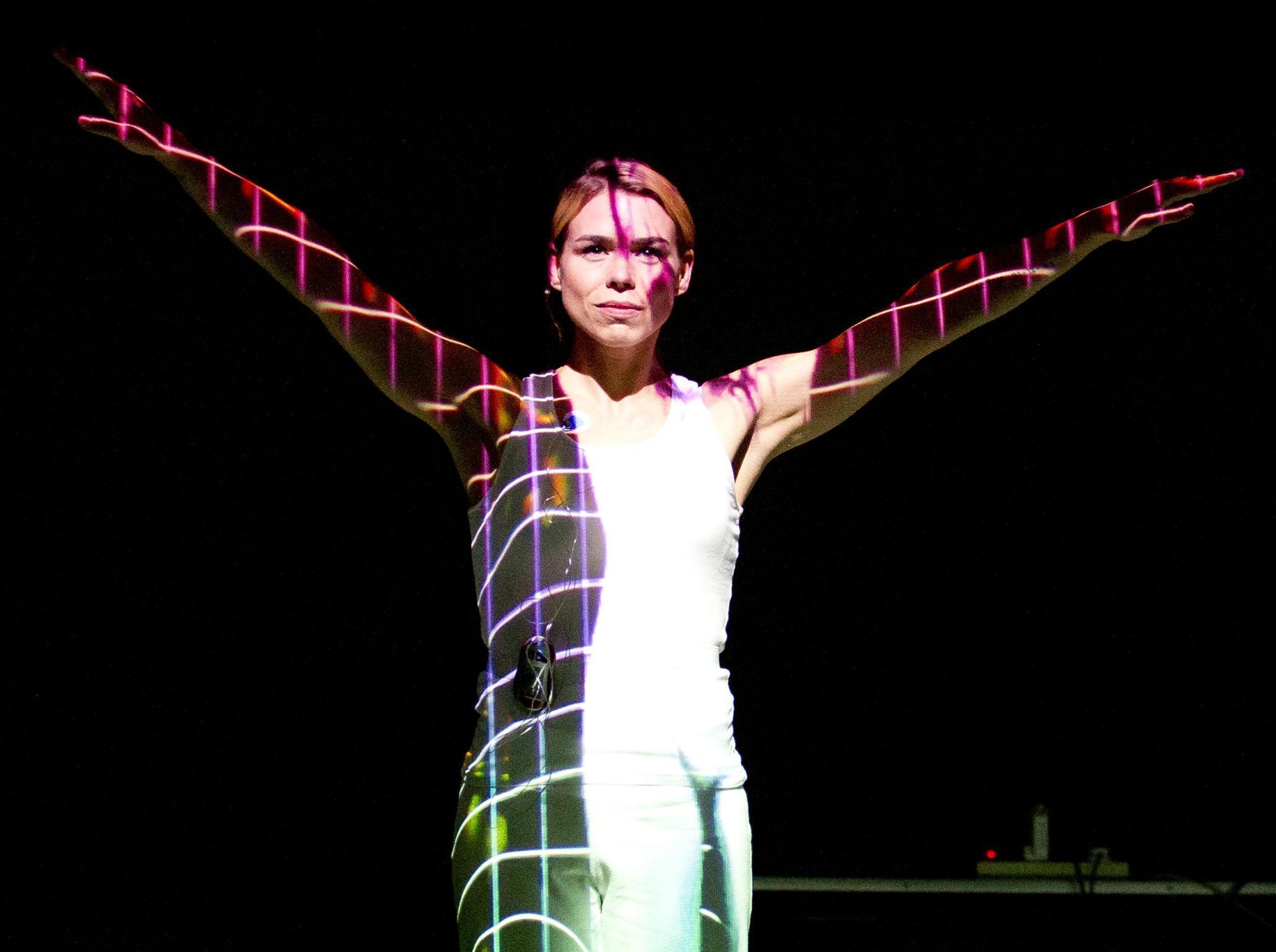IoS theatre review: The Effect, NT Cottesloe, London The Orphan of Zhao, Swan, Stratford-Upon-Avon The Dark Earth and the Light Sky; Almeida, London
A long-awaited reunion of the 'Enron' team in a play about clinical trials results in an instant sell-out, and finds all involved in rude health

Love is a drug, it's often been said. But is that just a metaphor? Romance and medication are intertwined in The Effect, a keenly awaited tragicomedy written by Lucy Prebble and premiered by Rupert Goold (both acclaimed before, for Enron).
Billie Piper's Connie and Jonjo O'Neill's Tristan meet as volunteer guinea pigs in clinical trials for what may be a fantastic new antidepressant. Overseeing this experiment for a pharmaceuticals corporation, Tom Goodman-Hill's Toby is a consultant psychiatrist hankering for positive results, with the added motivation that he might, some years earlier, have pushed an ex over the brink into mental breakdown.
The scans of Connie and Tristan's brain activity indicate that escalating doses of RLU37 are inducing an emotional high. However, Toby's colleague, Anastasia Hille's Lorna, isn't sold on the idea of pill-popping. The two triallists have fallen in love, she says, and so their bodies are releasing euphoric stimulants naturally. Casting off their heart monitors after lights out, they are screwing up the data, Lorna argues. But which is the cause and which the effect? Is RLU37 the elixir of love?
We see Piper's initially cynical Connie succumbing to O'Neill's flirtations and being swept off her feet in a romance that could prove high risk, as she starts obsessing about whether their love is real or merely chemical. That, in turn, sparks a doctors' dilemma.
Admirable in many ways, Goold's in-the-round production creates a sense of inescapability and intimacy, with Miriam Buether's set somewhere between an old-style operating theatre and a designer lounge, encircled by yellow sofas. Hille is superb, moving from dry humour to devastation, while Piper and O'Neill dance around, feverishly intense and then alarmingly visceral.
That said, I was mildly disappointed by several plot developments, Prebble and Goold's dicky schmaltz-monitor, doctors' speeches that don't ring true and check-ups lit like a sci-fi disco. High points include witty one-liners, blazing rows and thought-provoking questions about placebo effects and scientific objectivity.
In The Orphan of Zhao – a Chinese revenge drama staged by the RSC's Gregory Doran – a decadent emperor and his thuggish favourite, Tu'an Gu, terrorise all the sagacious advisers at court. Further determined to wipe out the noble minister Zhao's entire dynasty, Tu'an Gu embarks on a massacre of the innocents. Zhao's newborn has been smuggled out of the palace by a lowly country doctor, who may end up sacrificing his own son. It's payback time when Zhao's boy, unwittingly adopted by Tu'an Gu, discovers his true parentage.
The RSC's A World Elsewhere season, airing rarely seen foreign classics, is well intentioned, and James Fenton's English translation drawing on the 13th-century original has some scintillatingly poetic moments. The production is also neatly timed, opening in this week of leadership changes in modern China. But Doran, the RSC's new artistic director, doesn't quite manage to invest The Orphan with either vibrant life or suspense. There are splendid costumes, with Stephen Ventura's Emperor a heartless bauble, wafting around in golden robes, and Joe Dixon's Tu'an Gu grinning fiendishly in black and scarlet leather armour. Nonetheless, the production feels ersatz, with only a few Asian actors on board, in bit parts, and the largely naturalistic acting falling a mite flat.
However, the tragic coda is worth the wait: a sudden glimpse of the psychologically scarred aftermath, when the righteous have won through, only to be grief-maddened and wreathed by ghosts.
In the Almeida's outstanding and deeply moving new biodrama about the rural English poet Edward Thomas, who died at the front in the First World War, Pip Carter's gaunt, pale Thomas is a sensitive soul with a destructive streak. In the opening scenes of The Dark Earth and the Light Sky, written by Nick Dear and directed by Richard Eyre, we see him scorned by his father for being a wimpy, literary dropout.
Retreating from the Big Smoke to the countryside, which he adored, Carter's Thomas remains racked by depression, and is often hair-raisingly cold towards his wife. Hattie Morahan's Helen, once his childhood sweetheart, resists valiantly and remains fiercely loving.
Diagnosed as a neurasthenic, Edward may have a death wish and seems haunted by what the neurologist MacDonald Critchley called "the sense of a presence", a mysterious "other man" with whom he communes on long, lonely walks. Meanwhile, Helen could also be thrown over in favour of his newfound friend, the American poet Robert Frost, played by Shaun Dooley with a bluff, salt-of-the earth manner and flashes of misogyny.
Apart from Thomas's hectoring father, who could be toned down, Eyre's production is exquisitely staged and acted. The countryside is evoked with a light touch – a stretch of rich, dark soil and a haze of passing clouds. Scenes are made to flow, effortlessly, between monologues and flashbacks, building up complex, deliberately conflicting views of this enigmatic man.
Carter's performance as Thomas is extraordinary, hateful at points yet conveying a deep, repressed tenderness. Pandora Colin steers a fine line between the comical and sympathetic as the spinsterish, sharp-eyed Eleanor Farjeon, Edward's ardent admirer. And Morahan is heartbreaking, herself spiralling into mental breakdown.
'The Effect' (020-7452 3000) to 23 Feb; 'The Orphan of Zhao' (0844 800 1110) to 28 Mar; 'The Dark Earth and the Light Sky' (020-7359 4404) to 12 Jan
Critic's Choice
Given an electrifying premiere at London's Young Vic, Blackta (to Sat) is a droll and angry portrait of struggling black British actors. At the Royal Exchange Manchester, it's the last chance to catch Imogen Stubbs as Lady Torrance in Tennessee Williams's Orpheus Descending, with Luke Norris as the drifter who changes her stunted life (to Sat).
Join our commenting forum
Join thought-provoking conversations, follow other Independent readers and see their replies
Comments